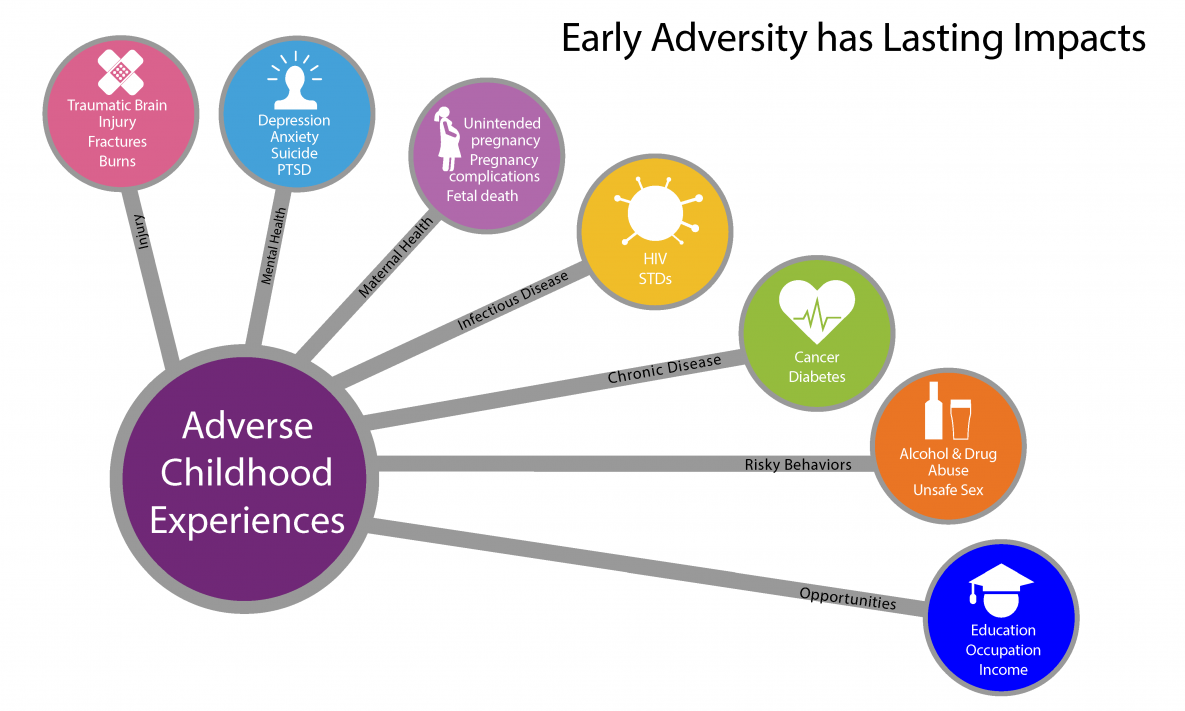Understanding Trauma
Trauma has been a source of focus for Envision Partnerships for several years, but more so recently because of its links to sharp rises in both suicides and opiate addiction. A bulk of trauma research and solutions that apply to our work came from the Adverse Childhood Experiences, or ACE, study.
Between 1995 and 1997, over 17,000 people conducted confidential surveys and completed physical exams for this revolutionary study completed by the Center for Disease Control (CDC) and Kaiser Permanente (see infographic here). ACE is a term given to a general group of negative experiences such as having a parent incarcerated, experience with abuse, or living with a problem drinker, etc. to anyone before age 18.
Adverse Childhood Experiences have shown to influence long-term health of individuals, families, and communities. See below for some of the long-term effects of having several adverse childhood experiences.

Source: Center For Disease Control, ACE Study; 10/30/19
Building Resilience
Pairing trauma and resiliency together is important because stress in an ACE is normal, and ACEs themselves can be common.While experts believed for several years that the mind was in a fixed state, unable to change past development into adulthood, scientists now widely accept that the brain is in fact malleable based on new experiences surrounding lifestyle, environment, and physiology.
The Substance Abuse and Mental Health Services Administration (SAMHSA) states three common themes that demonstrate effective ways to increase resilience in childhood: cognitive development/problem solving skills, self-regulation, and relationships with caring adults.



